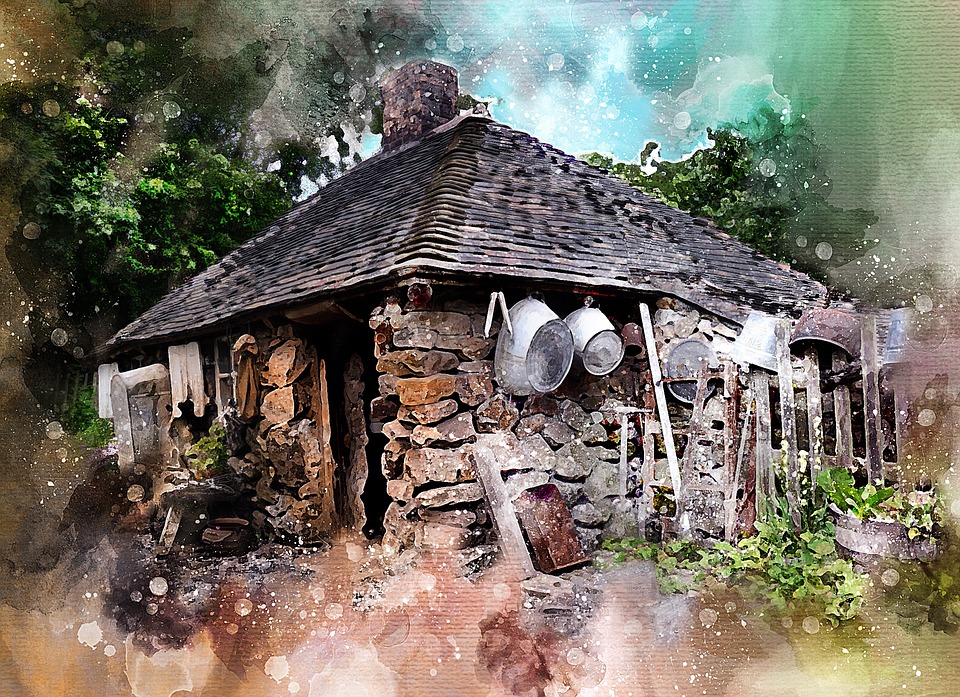<h1>Don't Overlook These Hidden Costs When Buying a home</h1>
<img src="placeholder-house.jpg" alt="Illustration of a house" width="600">
<p style="font-style: italic;">(Replace this placeholder image with a relevant image of a house, families, or money. Make sure you have the rights to use the image.)</p>
<p>Buying a home is often hailed as the American Dream, but the journey from house hunting to holding the keys can be paved with unexpected expenses. While budgeting for the down payment and mortgage is crucial, it's equally important to be aware of the often-overlooked "hidden costs" that can significantly impact your finances. Failing to account for these expenses can quickly derail your budget and leave you feeling financially strained. Let's explore some of the most common culprits:</p>
<h2>Closing Costs: Beyond the Down Payment</h2>
<p>Closing costs are fees associated with finalizing the home purchase. These are in addition to your down payment and can amount to thousands of dollars. Here's a breakdown of some common closing costs:</p>
<ul>
<li><b>Appraisal Fee:</b> A professional appraisal assesses the fair market value of the property.</li>
<li><b>Inspection Fee:</b> A home inspection reveals any potential problems with the property's structure, plumbing, electrical systems, etc. Crucial for identifying potential repairs needed BEFORE you buy.</li>
<li><b>Title Insurance:</b> Protects you from any legal claims against the property's title.</li>
<li><b>Loan Origination Fee:</b> A fee charged by the lender for processing your mortgage.</li>
<li><b>property Taxes (Prepaid):</b> You may be required to prepay a portion of your property taxes.</li>
<li><b>Homeowners Insurance (Prepaid):</b> You'll need to have homeowners insurance in place before closing.</li>
<li><b>Recording Fees:</b> Fees charged by the local government for recording the deed and mortgage.</li>
</ul>
<p><b>Pro Tip:</b> Shop around for different service providers (appraisers, inspectors, title companies) to potentially save money on closing costs. Also, carefully review your Loan Estimate and Closing Disclosure to understand all the associated fees.</p>
<h2>Moving Expenses: Packing, Transport, and More</h2>
<p>Moving can be more expensive than you think. Factor in these potential costs:</p>
<ul>
<li><b>Professional Movers:</b> Hiring movers can save you time and effort, but it's a significant expense. Get quotes from multiple companies.</li>
<li><b>Truck Rental:</b> If you're moving yourself, renting a truck, purchasing packing supplies (boxes, tape, bubble wrap), and potentially hiring helpers are still costs to consider.</li>
<li><b>Packing Supplies:</b> Don't underestimate the cost of boxes, tape, bubble wrap, and other packing materials.</li>
<li><b>Travel Expenses:</b> Gas, tolls, and lodging (if moving long distances) can add up quickly.</li>
<li><b>Storage Fees:</b> If you need to temporarily store your belongings.</li>
</ul>
<h2>Homeowners Insurance: Protecting Your Investment</h2>
<p>Homeowners insurance is a necessity, and the premiums can vary significantly depending on the location, coverage amount, and deductible. Get quotes from multiple insurance providers to find the best rate.</p>
<h2>property Taxes: An Ongoing Expense</h2>
<p>property taxes are levied by local governments and are typically paid annually or semi-annually. The amount is based on the assessed value of your property. Be sure to research the property tax rates in the area you're considering.</p>
<h2>Maintenance and Repairs: The Inevitable Costs of Homeownership</h2>
<p>Unlike renting, you're now responsible for all maintenance and repairs. It's wise to set aside a percentage of your home's value each year (experts often recommend 1-3%) for unexpected repairs. Consider these potential expenses:</p>
<ul>
<li><b>Plumbing Issues:</b> Leaky faucets, clogged drains, and burst pipes.</li>
<li><b>Electrical Problems:</b> Faulty wiring, malfunctioning outlets, and broken appliances.</li>
<li><b>HVAC Repairs:</b> Furnace or air conditioner repairs can be costly.</li>
<li><b>Roof Repairs:</b> Leaks, damaged shingles, and other roof issues.</li>
<li><b>Landscaping:</b> Lawn care, tree trimming, and other landscaping maintenance.</li>
<li><b>Appliance Repairs/Replacements:</b> Dishwashers, refrigerators, ovens, washing machines, etc.</li>
</ul>
<h2>Utilities: Budgeting for Ongoing Services</h2>
<p>Utility bills can vary depending on the size of your home, the climate, and your usage habits. Factor in these costs:</p>
<ul>
<li><b>Electricity:</b> Powering your lights, appliances, and electronics.</li>
<li><b>Gas:</b> Heating your home, cooking, and potentially heating water.</li>
<li><b>Water:</b> For drinking, bathing, and landscaping.</li>
<li><b>Sewer:</b> Wastewater disposal.</li>
<li><b>Trash Removal:</b> Garbage and recycling collection.</li>
<li><b>Internet/Cable:</b> Staying connected.</li>
</ul>
<h2>HOA Fees (If Applicable): Community Living Costs</h2>
<p>If you're buying a home in a community with a Homeowners Association (HOA), you'll need to pay monthly or annual HOA fees. These fees cover common area maintenance, landscaping, and other community amenities.</p>
<h2>Closing Thoughts: Be Prepared and Budget Accordingly</h2>
<p>Buying a home is a significant financial undertaking. By being aware of these hidden costs and factoring them into your budget, you can avoid unpleasant surprises and ensure a smoother transition into homeownership. Do your research, ask questions, and consult with financial professionals to make informed decisions. A little planning goes a long way in making your dream home a financially sustainable reality.</p>Frequently Asked Questions
What is a lien on a property?
A lien is a legal claim against a property for a debt and can affect selling or refinancing until resolved.
How do I check if there are liens on a property?
Search county recorder records for lien documents and check whether releases/satisfactions were recorded.
How to search liens on property using public records?
Search by owner name and property/APN, then review recorded documents for lien filings and releases.
Can I do a property lien search for free?
Sometimes via county systems, but coverage and search tools vary and may not include court/agency systems.
What’s the difference between a lien and a mortgage?
A mortgage is a voluntary lien; other liens can be involuntary like tax liens or judgment liens.
How do I know if a lien is still active?
Look for recorded releases, satisfactions, expirations (if applicable), or court resolutions—rules vary.
What is a mechanics lien?
A lien contractors/subs may file for unpaid work/materials; deadlines and rules vary by state.
What is a tax lien?
A government lien for unpaid taxes that can have high priority over other claims.
Do liens always show in recorder records?
Many do, but some also live in court or agency systems, so a full search can require multiple sources.
Why do “free lien check” sites disagree?
They differ in coverage, indexing quality, refresh rate, and whether they include court/agency sources.

